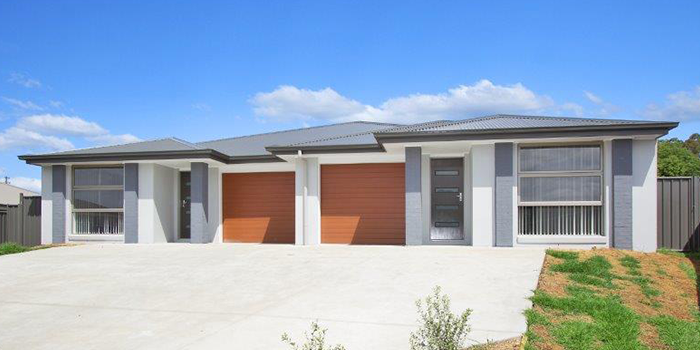If an instant equity gain of over $100,000 sounds appealing, then building duplex homes can do exactly that! That kind of equity gain can help you to buy another property almost immediately, accelerating your investment property portfolio growth. And the dual-income from renting a duplex can bring the next item on your wish list that much closer!
Not surprisingly, building duplex homes are an attractive option for many property investors, especially if financial independence is one of your goals.
I would like to share with you how you can add a duplex development to your portfolio.
Firstly it is very important to know your financial capacity and if a duplex is right for your situation. I recommend seeking professional advice for your own situation. Once you have that sorted out it is important to know where you want to do the project and then short-list suitable regions, based on your strategy and financial capacity.
You should check the regions for new land releases, including whether they’ve been registered and check for suitable vacant blocks in established areas, especially among quality owner-occupied homes that drive market value – they can be great opportunities for capital growth.
It is important that zoning is right for what you want to do. It should at least by R2 zoning and it is wise to contact the council to see if there are any issues with getting duplex homes onto your desired block. If it is in a new estate you should also check with the developer to ensure they give approval for a duplex to go on the block – not all blocks are duplex approved.
I always check for easements and covenants. If there are any covenants against building duplexes, you might be able to get them removed.
You need to liaise with your builder or draftsperson so they can place a design on the block. You need to get the opinion of the experts to ensure that what you want to build there will also fit within council guidelines for setbacks.
Once you have settled on the land you need to negotiate on a construction price with the builder. I suggest that it is wise to have the builder include the cost of the council DA and headwork fees as well as subdivision costs into the contract so you can finance these amounts, and save your cash.
The Housing Industry Association (HIA) contract will have a section for liquidated damages. This protects you if the builder goes over the build contract timeframe. It is therefore important that you put in the contract maximum completion date. Given that it only takes around 4 – 5 months to build a duplex on average, having either 26 or 30 weeks maximum build time in the contract is usually sufficient.
Your builder or your project manager should send you regular photos of your build at each stage of construction. This is the fun part, watching everything go up from when they turn the soil right through to completion.
And don’t forget at the end to get a deprecation report for the taxman. Two lots of depreciation on the duplex means potentially a lot of tax saved.
The main thing is to enjoy it and then refinance your new equity and repeat the process.

